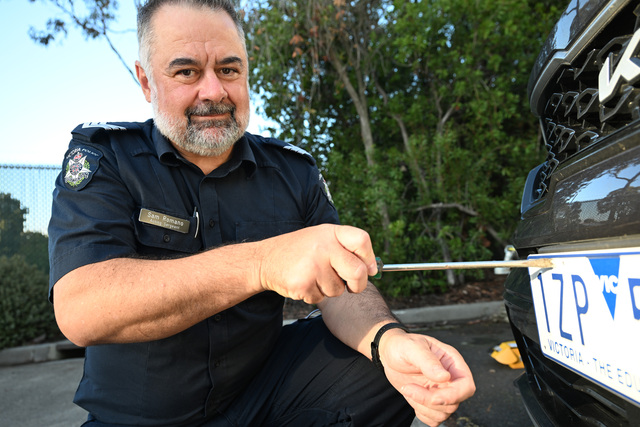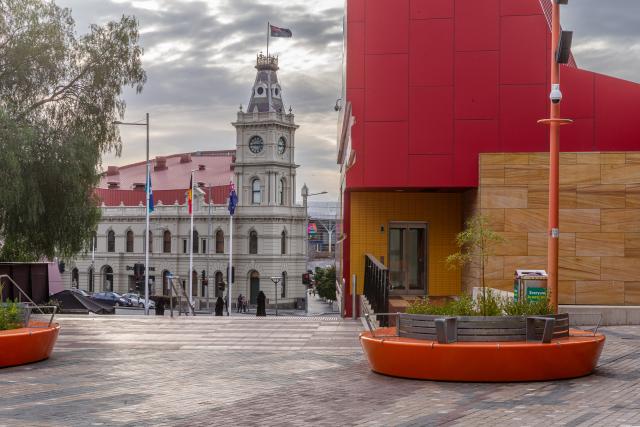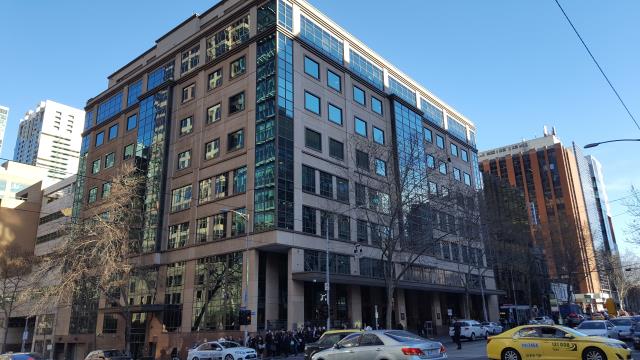Councillors say the staggering housing crisis and cost of living pressures is putting Greater Dandenong’s most vulnerable in a chokehold.
At a council meeting on Monday 13 May, Crs Tim Dark and Rhonda Garad rose to speak on the “real issue” questioning Council’s strategy on the urgent matter.
“Dandenong is ranking the highest or near the highest in every indicator for financial and social distress,” Cr Garad said at the meeting.
“In my 30 years in Dandenong I’ve never witnessed so much distress even in people who are earning a wage who cannot live in a house because they cannot afford the unaffordable rents or the massive increase in mortgages.”
Council’s Quarterly Performance Report, detailing performance against targets outlined in previous budgets, depicted projects around homelessness and increased social housing availability marked as “externally impacted.”
“I’ve had correspondence from a single mum with four kids unable to get accommodation,” Cr Dark said at the meeting.
“This is not just a council issue but has significant responsibility on State and Federal government.”
The issue was raised ahead of the Federal Budget announcement on Tuesday 14 May, where Councillor Garad questioned whether Council would collate a report to summarise “data points and gives a true and current picture of what’s going on.”
“The people of Dandenong are suffering at this time that is unprecedented and its unacceptable that our council does not have a collated current report that reflects the true depth of impacts in our community.”
Strategic Growth and Advocacy executive manager Dr Marjan Hijjari says Greater Dandenong Housing Strategy 2014-2024 is currently being updated to align with the State’s Housing statement made in September 2023.
“The Strategy proposes a range of initiatives to achieve the housing vision, from changing the Greater Dandenong Planning Scheme to other non-statutory actions involving all of Council.
“The housing crisis is a complex matter and is impacted by multiple factors including labour and material shortages, the cost and availability of rental properties, warehousing of planning permits and land banking by developers, tax regulations and infrastructure delivery,” she said.
The success of the Bring Your Bills Day event by the South East Community Links (SECL) was also noted where 300 attended.
Ms Hajjari said council will host the next Bring Your Bills Day in August in Dandenong and advocate for further funding to expand the program.
“At the same time the council Anti-Poverty consortium of 18 agencies continue to meet monthly and support collaborated effort to identify and address ongoing needs in the community,” she said at the meeting.
“All agencies report an increase in demand in their services and council has supplied various organisation with letters of support calling for additional funding.”
A $300 energy rebate for every home, 10 per cent increase to rental assistant, freeze in medicine prices, $1billion in funding for the Housing Support Program are some reliefs announced in last week’s Federal Budget.
Bruce MP Julian Hill calls it an “economically responsible budget” for all.
“Australia’s housing crisis has grown for over a decade and this budget tackles it head on, delivering billions more dollars to build homes across the country.
“More social and affordable housing, more infrastructure and the removal of red tape, more transport for cities and suburbs, while cutting migration to reduce demand pressure.”
As reported previously by Star Journal, Dandenong topped the state for levels of homelessness last year in March, up by 22 per cent, it’s also in the state’s top 5 for growing numbers of working homeless.
Shari McPhail, general manager at South East homelessness service Wayss, said the budget is not going to relieve entrenched poverty in the region.
”The Australian Federal Government Budget broadly supports Wayss’s vital work in helping individuals facing homelessness and family violence, and we are grateful to be able to continue offering people support.
“However, the lack of increased welfare payments amid a cost-of-living crisis is deeply concerning. This can only exacerbate the situation.”
Urgent welfare funding and comprehensive reform were essential for sustainable progress, Ms McPhail said.
“While we welcome continued funding for the Leaving Violence Program and significant investment in crisis and transitional housing, the budget overlooks critical funding for crisis accommodation operations and frontline services.
“We also see a big missed opportunity to focus on perpetrators of violence with targeted, evidence-based interventions to prevent further incidences.”
Wellsprings for Women has welcomed the measures intended to alleviate cost of living pressures but counts the lack of funding for grassroots level pf primary prevention of violence against women, as a “downside.”
It’s chief executive officer Dalal Smiley emphasises on the importance of the having primary prevention programs in place to tackle the issue at grassroots level.
“The prevention work’s objective is to reduce and eventually eliminate all forms of violence against women before they start.
“It’s about a whole of society cultural change, it’s long term and can only be achieved with persistent programs of education and capacity building.”
South East Community Links welcomed the budget initiatives but noted there was “more work to be done” on cost-of-living, the housing crisis, and gendered violence.
“Utility bills are a top issue for our local community members, and the $300 energy rebate is a much-needed relief,” chief executive Peter McNamara said.
“However, extending it to everyone regardless of their income is puzzling.“
He described the Commonwealth Rent Assistance rise of $9.40 a week for a single person at the maximum as “modest” and still leaving many in “deep housing stress”.
“Renters on JobSeeker or Youth Allowance will continue to spend half their income on rent alone,” he said.
The Leaving Violence Program’s $5,000 grant for family violence survivors was “helpful but does not address the long-term financial challenges women face especially those on JobSeeker“.
“Increasing the JobSeeker rate is essential for women’s economic security, as living in poverty makes it even harder to leave family violence situations.“







